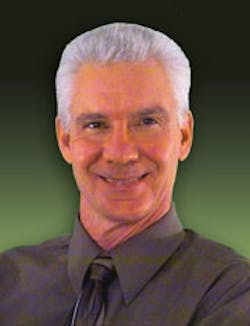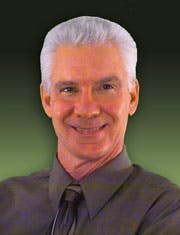High-Pressure Selling Doesn’t Work!
I first tried full-time sales in 1972. I joined a sales society called “Dare to Be Great.” We “Dare-to-be-Greaters” all read the same sales books, listened to the same sales tapes, and attended the same sales seminars. We met twice each day on weekdays and once each day over the weekends to discuss the books, tapes, and seminars, and to role-play.
What we were learning and practicing were the old fashioned, “selling through intimidation,” high-pressure sales techniques. That’s what they used to teach in those days.
I wasn’t crazy about what I was doing, so I gave it up and went into plumbing in 1975. I tried a few other sales-related jobs, with limited success, until I got into HVAC sales in 1985.
A ‘Killer’ is Born
After I started in HVAC sales, I was quickly given a nickname: “Killer.” That’s because I used to say that when I ran a call, prospects either bought from me, or I killed them. I bragged that if they didn’t buy from me, I made sure they never wanted to see another salesman again for the rest of their lives.
I, and the people I worked with, used to say that if you didn’t have at least one customer per month call into the office to complain about your using too much pressure, you weren’t closing hard enough. One complaint of that nature per week meant you were really doing your job!
Our policy was that a residential replacement sales call should last until they either bought from you or you were asked to leave.
We believed that if you didn’t close the sale on the first call, you had very little chance of closing it at all.
I did very little follow-up. I couldn’t see the point in it. After what I’d put most people through on the first call, they never wanted to see or hear from me again.
Fast Forward Two Years
The year is 1987. Calls are extremely scarce. About six weeks in a row, at least one person per week that I had seen as much as two years prior, called up and bought from me over the phone.
I wondered if they’d forgotten it was me. I found that to be true in one case, because when I went to the home to pick up their signed paperwork, they took one look at me and slammed the door in my face! I hollered through the door, “But you called me!” They yelled back, “We didn’t know it was you!”
Regardless of that experience, I got to thinking that there was still some potential hiding in the pile of paperwork I’d generated over the last two years or so, and decided to sort it out and make a few phone calls to see what happened.
I had never filed anything, so I had a pile of paperwork. I started by sorting the one big pile into three smaller piles. I made one pile for the people who’d already bought from me; another for the people who, to the best of my knowledge, hadn’t bought from anyone yet; and a third pile for the people who’d bought from someone else.
This entire process took about 90 minutes and, during that time, I begin to feel every aspect of my life change right before my eyes . . . and there was nothing I could do about it.
A Pattern Energes
Since I was looking for follow-up potential, it only made sense that, as I sorted through all this paperwork, I tried to remember exactly what happened during each call.
A pattern emerged.
As I thought about the people in the pile who’d bought from me, I realized that not a one of them had gotten the high-pressure treatment. hy? Because they’d bought! I hadn’t had the opportunity to pressure them.
The people in the piles of people who hadn’t bought from anyone yet or had bought from someone else were the people who’d gotten the high-pressure treatment.
That proved to me mathematically that high-pressure sales tactics do not work!
The truth hit me like a ton of bricks.
I remember there was this 50-year old salesman sitting as his desk, silently watching me the whole time. He was learning back in his chair with his hands clasped behind his head. is name was Bob. He’d been in sales all his life and he’d seen plenty of salesmen come and go.
I looked up at him and said, “You know something, Bobby? You can’t make people buy. You can’t force them to buy. You can’t talk them into buying. All you can do is try to figure out what they want to buy, and let them know you’ve got it.”
There was a moment of silence, then, without moving an inch, he quietly stated, “I think you’re on to something there, Charlie.”
Everything Changes
Fortunately for both salespeople and customers, sales training and sales techniques changed dramatically in the late 1980s. I was taking the Dale Carnegie sales course, which was teaching me a far gentler, much more professional sales presentation and style. I was running calls with the late Tom McCart, who was known as “HVAC’s Million-Dollar Salesman,” and he had a wonderful, gentle approach that was completely devoid of pressure.
The moment that permanently and irrevocably changed my selling style, and my life, forever, occurred a few days after I’d sorted all my filing and had had that revelation. I was on my way to a sales call. As was my custom, I was listening to a new audio tape I’d acquired, called See You at the Top, by Zig Ziglar.
I was driving along, minding my own business, when he said (I’ll paraphrase), “When you run a call, a number of things may be beyond your control; but one thing will always be within your control, and that is the impression that you make. From now on, whenever you run a call, whether you make a sale or not, you can always make a favorable impression. I challenge you to make it a point, from now on, to always make a favorable impression of salespeople in general, and to make it a goal to leave the door for the next salesperson who comes into your prospects’ lives open just a little bit wider.”
That’s when it really nailed me. I realized that I was a “bad” salesman. I was one of the guys who were giving salesmen a bad name. And I felt ashamed.
I pulled the car off the road and started bawling like a baby. I felt like a prize fool; but not for crying; for unknowingly doing everything I could to give my chosen profession a bad name.
That was the moment I became a real salesman.
Stop ‘Selling’
When you run calls, don’t try to “sell” prospects anything. You don’t “sell”; they buy. They called you out there to buy. They’re going to buy — if not from you, from someone else, usually within hours of meeting you. There’s no reason why they shouldn’t buy from you.
Just figure out what they want to buy, and let them know you’ve got it. Make them feel good about buying from you, and you’ll make more sales.

